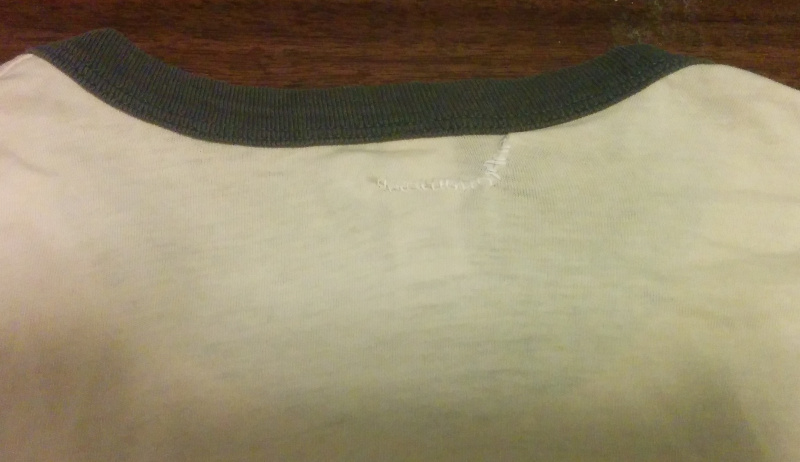by Javantea
Dec 27, 2015
Today I sewed two holes in two shirts. Both shirts have survived a long time but both had become unwearable. By coincidence both shirts were a few sizes too small. Both shirts were worn hundreds of times despite not being the perfect shirt for the task and that is certainly the reason why they came apart after so many years of service. The blue work shirt was made in India in the previous decade and sold by Gap with their brand on it. My brother bought me it so that I would have one dress shirt that I could wear it to interviews. The white ringer was made in Los Angeles by good ol' American Apparel in the previous decade. I bought it from Scarecrow Video in Seattle in the early 2000's. Both are probably a decade old at least. Vintage surely.
Read more »Sono.us: link shortener for the author
AltSci Network: sites by same author
AltSci Blog: Unified blog for Javantea. Search this blog and others by the same author
I have setup TLS for sono.us and www.cell-game.com using Let's Encrypt. Both certificates will expire January 25, 2016.
Instead of running letsencrypt with sudo privileges on my server, I ran letsencrypt-nosudo. According to Issue #5, this can be done using the official client as well. Because letsencrypt-nosudo was very short, I was able to modify it and vet it easily. There are weaknesses in any system, but the options are quite limited in this system. If you'd like my patch, let me know.
Read more »
I thought I'd just write a few thoughts down and see where it goes. I'm having trouble writing down my thoughts. Apologies if I go too fast. I'm not in the mood to be patient.
First things first. I write a lot. My mother is a bibliophile. I am a scriptophile, I love to write. But I don't publish most of what I write. My graphic novel Javantea's Fate ground to a halt not long after it started, so I started a blog called "Making of JF" hoping to gain readership by writing keywords and drawing interesting things a few days per week. Years later very few pages of Javantea's Fate were finished, but 378 pages of Making of JF were done. That's a huge amount of writing. It was a very tough part of my life, so I'm glad that I have that corpus of writing to show what my mind was thinking. But I didn't post everything I wrote. The House MD episode "Private Lives" discussed a person who wrote down everything she was going through. I didn't do that back in 2001, but I was spending a few hours three days a week on it. I can't do that now because I signed a confidentiality contract with my previous employer and one of our clients. They went to bat for me and I owe them my current happy status but I also think that the past four years of not quite radio silence (comparatively) has warped my mind. Of course my mind was warped before I went to work in infosec, but the secrets I've kept have gnawed at me. It's the whole issue of doublethink straight from 1984. I am holding two contradicting truths to be true at the same time. Operational security is incredibly important, information should be made free. But information is power and with great power comes great responsibility. I am an irresponsible person. I don't believe in control.
Let's talk about control. There are more than a few theories on the human mind that talk about control and I'm not going to do them any justice explaining them right now. Let's say that my friend, let's call him Descartes for now says that human beings are incapable of moving. He's wrong, but let's say I'm so furious that I want to prove to him that human beings are capable of moving. So I tell him, if I am able to walk from my current position to one foot in front of you, then I can move and your statement is false. He replies, but how do you know you're moving and not changing my mind about what's going on? Occam's razor? Nope. Descartes isn't having it. So I think again. I am unable to reach out and touch you right now. If I am able to reach out and touch you, I must be able to move therefore your theory is wrong. Descartes is too smart for that. You can change my mind, so how do I know if you're actually touching me?
Read more »



